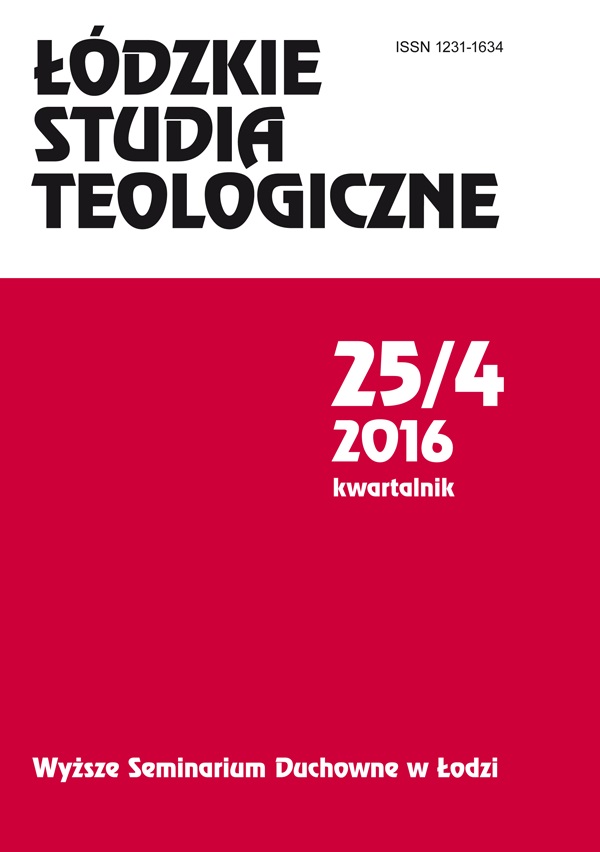Polska Rada Ekumeniczna i jej znaczenie dla ekumenicznego dialogu
Polish Ecumenical Council and its significance for ecumenical dialogue
Author(s): Wojciech HancSubject(s): Comparative Studies of Religion
Published by: Wyższe Seminarium Duchowne w Łodzi
Keywords: Polish Ecumenical Council; Roman Catholic church; dialogical dimension of ecumenism; dialogue results; baptism
Summary/Abstract: Seventy-year history of the Polish Ecumenical Council and its dialogical character is particularly significant for the history of the Ecumenical Church Council and the history of a dialogical attitude of the Roman Catholic Church in Poland. The Roman Catholic Church has been involved in the ecumenical dialogue since the constitution Lumen gentium (1964) which was issued during the II Vatican Council, the decree on ecumenism Unitatis redintegratio (1964) and the encyclical Ut unum sint (1995), which was written by the pope John Paul II, who tried to treat an ecumenical dialogue as an important ecumenical factor; it was understood both widely (as an ecumenical dimension of all ecumenical activities) and narrowly (as a doctrinal dialogue), which makes us pay particular attention to local dialogical structures that aim to get rid of still existing discrepancies, both in doctrines and practical forms of cooperation. It is evidenced by the history of mutual relationships between local churches in Poland, which conduct bilateral and multilateral dialogues. “Ecumenical Encyclopedia of Poland (1964-2014)” was issued in 2016 and it stresses the importance of inter-denominational doctrinal dialogues in Poland as an unusual achievement which plays “a key role in the striving for visible unity” of Christians from various traditions, which in the last 70 years have been gathered in the ecumenical structure of the Polish Ecumenical Council in its dialogical relations with the Roman Catholic church and vice versa of the Roman Catholic Church with the Polish Ecumenical Council. The following commissions played a particular role in this process: Mixed Commission consisting of the PEC members and the members from the Ecumenism Commission of the Polish Episcopate and Dialogue Sub-commission. This was the aim of the author of this article, who on the basis of multilateral dialogue related to the sacrament of baptism, attempted to confirm the thesis “the impossible becomes possible”, which is proclaimed by the ecumenists. Consequently, brotherly and sisterly relations can deepen in order to “achieve unity in truth”. For this reason the first part of this article presents the origins and development of the Polish Ecumenical Council; the second part contains ecumenical and dialogic initiatives of the Council and Roman Catholic church, while the third one demonstrates the results of local dialogues in Poland, which were conducted by the above mentioned church subjects; it is based on the incredible example regarding “the sacrament of baptism as a sign of unity” by which the “Declaration of Polish churches on the threshold of the third millennium” confirms bilateral dialogues, which aimed to finalize mutual recognition of the importance of baptism in the above mentioned ecclesial structures.
Journal: Łódzkie Studia Teologiczne
- Issue Year: 25/2016
- Issue No: 4
- Page Range: 13-28
- Page Count: 16
- Language: Polish

